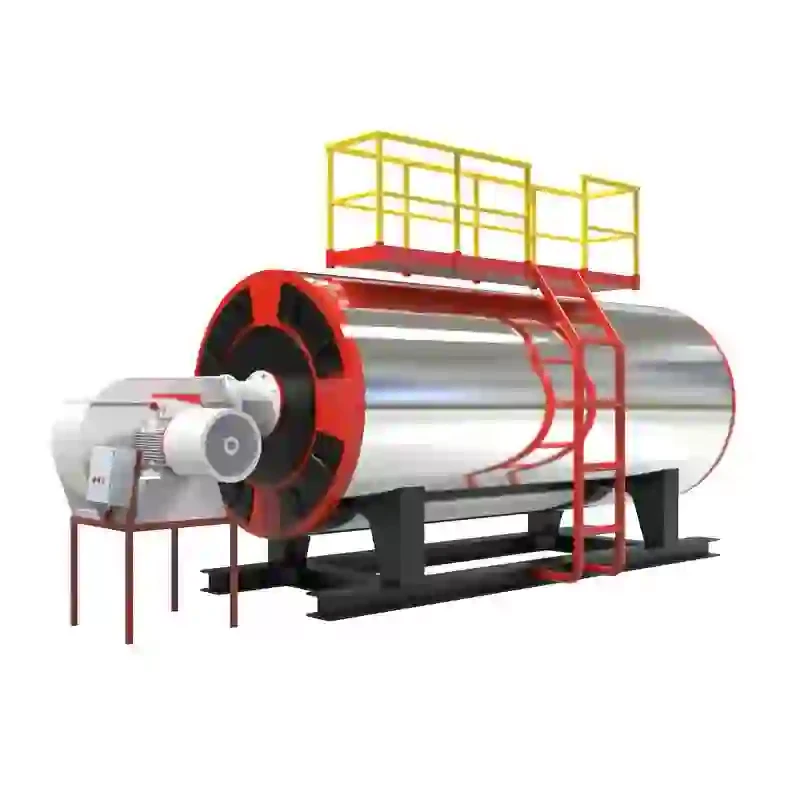
Oct . 22, 2024 11:26 Back to list
Various Types of High Pressure Boilers and Their Applications
Understanding High Pressure Boiler Types
High pressure boilers are devices designed to generate steam at pressures above 15 psi (pounds per square inch). These boilers are crucial in various industrial applications, ranging from power generation to manufacturing processes. The selection of an appropriate boiler type is integral to achieving energy efficiency, reliability, and safety in operations. In this article, we will explore the main types of high pressure boilers, their applications, advantages, and factors influencing their selection.
1. Fire-tube Boilers
Fire-tube boilers are a common type of high pressure boiler where hot gases pass through tubes that are surrounded by water. The heat from the gases transfers to the water, generating steam. These boilers are typically simpler in design and easier to operate. They are known for their quick response times and ability to produce large amounts of steam in a short period. However, fire-tube boilers are generally less efficient than their water-tube counterparts when it comes to higher temperatures and pressures.
Applications Fire-tube boilers are widely used in heating applications, commercial buildings, and smaller industrial plants due to their ease of use and maintenance.
2. Water-tube Boilers
In contrast to fire-tube boilers, water-tube boilers circulate water inside tubes that are heated by external combustion gases. This design allows them to withstand much higher pressures and temperatures, thus making them suitable for large-scale industrial operations. Water-tube boilers are more efficient than fire-tube models and provide greater flexibility in terms of capacity and steam output.
Applications These boilers are predominantly used in power plants, refineries, and large industrial facilities requiring high steam quantities at elevated pressures.
3. Supercritical Boilers
Supercritical boilers operate above the critical point of water (around 3200 psi), where there is no distinction between the liquid and vapor phases. This technology allows for higher thermal efficiencies and reduced emissions, making supercritical boilers an attractive option for modern power plants. The system operates in a more efficient cycle, which translates to lower fuel consumption and better environmental performance.
Applications Supercritical boilers are mainly employed in large utility power plants that focus on maximizing efficiency while minimizing environmental impacts
.high pressure boiler types

4. Biomass Boilers
Biomass boilers use organic materials such as wood pellets, agricultural residues, or waste products to produce steam. These boilers can be designed as either fire-tube or water-tube systems. Biomass boilers represent a sustainable alternative for generating heat and power, aligning with global strategies to reduce carbon footprints.
Applications Biomass boilers are used in plantations, manufacturing industries that produce biomass waste, and facilities aiming for greener energy solutions.
5. Combined Heat and Power (CHP) Boilers
CHP systems are designed to generate both heat and power from a single fuel source. These high pressure boilers can efficiently utilize the waste heat from power generation for heating purposes, significantly improving energy efficiency. They are ideal for industrial applications where both steam and electricity are required.
Applications CHP systems are prevalent in manufacturing plants, universities, and hospitals, where the simultaneous production of electricity and heating offers cost savings and enhanced sustainability.
Factors Influencing Boiler Selection
When selecting a high pressure boiler, several factors come into play
- Capacity Requirements Understanding the amount of steam needed for operations helps determine the boiler size and type. - Fuel Type The availability and cost of fuel can influence the choice of boiler. For instance, natural gas is often favored for its lower emissions, while biomass may be chosen for sustainability. - Efficiency Needs Higher efficiency boilers typically have increased capital costs but can result in lower operational costs over time. - Environmental Considerations Regulatory requirements regarding emissions and sustainability goals guide the selection of cleaner and more efficient boiler technologies. - Maintenance and Operating Costs Evaluating the long-term maintenance requirements and operational costs ensures the boiler remains economically viable throughout its lifecycle.
Conclusion
Understanding the various types of high pressure boilers and their applications is crucial for industries aiming to optimize their operations. Each boiler type has its strengths and weaknesses, and the selection process involves careful consideration of factors such as efficiency, capacity, and environmental impact. By employing the right boiler technology, industries can achieve greater energy efficiency, reliability, and sustainability.
-
High-Efficiency Commercial Oil Fired Steam Boiler for Industry
NewsJul.30,2025
-
High-Efficiency Biomass Fired Thermal Oil Boiler Solutions
NewsJul.30,2025
-
High Efficiency Gas Fired Thermal Oil Boiler for Industrial Heating
NewsJul.29,2025
-
High-Efficiency Gas Fired Hot Water Boiler for Sale – Reliable & Affordable
NewsJul.29,2025
-
High Efficiency Biomass Fired Hot Water Boiler for Industrial and Commercial Use
NewsJul.29,2025
-
High-Efficiency Biomass Fired Hot Water Boiler for Industrial Use
NewsJul.28,2025
Related PRODUCTS






















